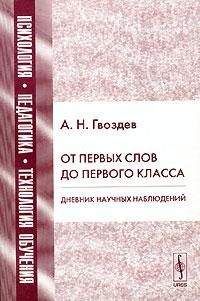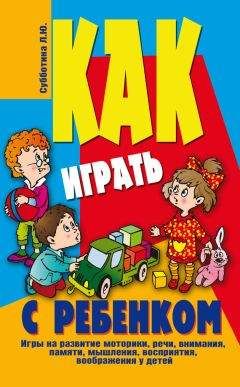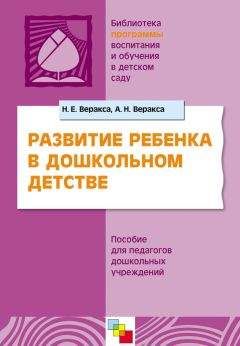Роберт Говард - Английский язык с Р. Э. Говардом
"In Mitra's name, Nabonidus (во имя Митры, Набонидус)," gasped Murilo, shaken (задыхаясь, произнес потрясенный Мурило; to shake — трясти; потрясать), "what is it (что это)?"
involuntarily [ɪnˈvɔləntərəlɪ], truculent [ˈtrʌkjulənt], threat [Ɵret]
Murilo felt his blood freeze again as he looked at the horror which seemed to be staring directly into his eyes. Involuntarily he recoiled from the mirror, while Conan thrust his head truculently forward, till his jaws almost touched the surface, growling some threat or defiance in his own barbaric tongue.
"In Mitra's name, Nabonidus," gasped Murilo, shaken, "what is it?"
"That is Thak (это Так)," answered the priest, caressing his temple (ответил жрец, поглаживая висок). "Some would call him an ape (некоторые назвали бы его обезьяной), but he is almost as different from a real ape as he is different from a real man (но он почти так же отличается от настоящей обезьяны, как он отличается от настоящего человека). His people dwell far to the east (его народ живет далеко на востоке), in the mountains that fringe the eastern frontiers of Zamora (в горах, которые окаймляют восточные границы Заморы). There are not many of them (их немного); but, if they are not exterminated (но, если их не истребят), I believe they will become human beings in perhaps a hundred thousand years (я полагаю, они станут людьми, возможно, через сотню тысяч лет; human being — человек). They are in the formative stage (они сейчас находятся на стадии формирования); they are neither apes, as their remote ancestors were (они ни обезьяны, какими были их далекие предки), nor men, as their remote descendants may be (ни люди, какими могут стать их далекие потомки). They dwell in the high crags of well-nigh inaccessible mountains (они живут на высоких скалах почти недоступных гор; well-nigh — почти), knowing nothing of fire or the making of shelter or garments, or the use of weapons (ничего не зная об огне или изготовлении укрытий = жилищ, или одежды, или использовании оружия). Yet they have a language of a sort (однако у них есть в некотором роде язык; of a sort — некоторого рода, такой, так сказать), consisting mainly of grunts and clicks (который состоит главным образом из хрипов и щелкающих звуков; click — звук-щелчок, щелкающий звук).
frontier [ˈfrʌntɪə], ancestor [ˈænsəstə], use [ju:s]
"That is Thak," answered the priest, caressing his temple. "Some would call him an ape, but he is almost as different from a real ape as he is different from a real man. His people dwell far to the east, in the mountains that fringe the eastern frontiers of Zamora. There are not many of them; but, if they are not exterminated, I believe they will become human beings in perhaps a hundred thousand years. They are in the formative stage; they are neither apes, as their remote ancestors were, nor men, as their remote descendants may be. They dwell in the high crags of well-nigh inaccessible mountains, knowing nothing of fire or the making of shelter or garments, or the use of weapons. Yet they have a language of a sort, consisting mainly of grunts and clicks.
"I took Thak when he was a cub (я взял Така, когда он был детенышем; to take), and he learned what I taught him much more swiftly and thoroughly (и он учился тому, чему я его учил гораздо быстрее и основательнее; to teach — обучать, преподавать; thoroughly — полностью; основательно) than any true animal could have done (чем могло бы /сделать/ любое истинное животное; to do). He was at once bodyguard and servant (он был одновременно телохранителем и слугой; at once — одновременно). But I forgot that being partly a man (но я забыл, что будучи частично человеком; to forget — забывать), he could not be submerged into a mere shadow of myself, like a true animal (он не мог бы погрузиться лишь в мою тень = стать лишь моей тенью, как истинное животное; to submerge — окунать; погружать). Apparently his semi-brain retained impressions of hate, resentment, and some sort of bestial ambition of its own (очевидно, его полу-мозг хранил впечатления/ощущения ненависти, чувство обиды и какое-то собственное звериное честолюбие; to retain — держать; сохранять; помнить; impression — впечатление; ощущение;resentment — негодование, возмущение; чувство обиды).
thoroughly [ˈƟʌrəlɪ], submerge [səbˈmə:ʤ], resentment [rɪˈzentmənt]
"I took Thak when he was a cub, and he learned what I taught him much more swiftly and thoroughly than any true animal could have done. He was at once bodyguard and servant. But I forgot that being partly a man, he could not be submerged into a mere shadow of myself, like a true animal. Apparently his semi-brain retained impressions of hate, resentment, and some sort of bestial ambition of its own.
"At any rate, he struck when I least expected it (как бы там ни было, он напал, когда я меньше всего ожидал этого; to strike — ударять; атаковать, нападать). Last night he appeared to go suddenly mad (вчера вечером он, по-видимому, вдруг взбесился; to appear — появляться; казаться; to go mad — обезуметь, взбеситься). His actions had all the appearance of bestial insanity (его поведение имело = носило все проявления безумия у животных; action — действие; поведение; деятельность; appearance — появление; внешние признаки; проявление), yet I know that they must have been the result of long and careful planning (однако я знаю, что они наверняка были результатом длительного и тщательного планирования).
suddenly [ˈsʌdənlɪ], insanity [ɪnˈsænɪtɪ], result [rɪˈzʌlt]
"At any rate, he struck when I least expected it. Last night he appeared to go suddenly mad. His actions had all the appearance of bestial insanity, yet I know that they must have been the result of long and careful planning.
"I heard a sound of fighting in the garden (я услышал шум борьбы в саду), and going to investigate (и отправившись выяснить причину; to investigate — расследовать; собирать сведения) — for I believed it was yourself, being dragged down by my watchdog (ибо я счел, что это тебя /самого/ таскает мой сторожевой пес; to drag — тянуть; таскать, тащить) — I saw Thak emerge from the shrubbery dripping with blood (я увидел, как Так вышел из кустарника, и с него капала кровь: «капающий кровью»). Before I was aware of his intention (прежде чем я догадался о его намерении; to be aware of — знать, сознавать), he sprang at me with an awful scream and struck me senseless (он бросился на меня со страшным воплем и оглушил меня; to spring at — бросаться на; to strike senseless — оглушить). I remember no more (я больше ничего не помню), but can only surmise that, following some whim of his semi-human brain (но могу лишь предположить, что, следуя какой-то прихоти своего получеловеческого мозга), he stripped me of my gown and cast me still living into the pits (он снял с меня мою мантию и швырнул меня еще живого в подземелья) — for what reason, only the gods can guess (по какой причине, могут догадаться лишь боги). He must have killed the dog when he came from the garden (наверное, он убил пса, когда тот пришел из сада), and after he struck me down (а после того как он свалил с ног меня; to strike down — свалить с ног), he evidently killed Joka (он, очевидно, убил Джоку), as you saw the man lying dead in the house (как ты видел, человека, лежащего мертвым в доме). Joka would have come to my aid (Джока пришел бы ко мне на помощь), even against Thak, who he always hated (даже против Така, которого он всегда ненавидел)."
fight [faɪt], awful [ˈɔ:ful], against [əˈɡenst]
"I heard a sound of fighting in the garden, and going to investigate — for I believed it was yourself, being dragged down by my watchdog — I saw Thak emerge from the shrubbery dripping with blood. Before I was aware of his intention, he sprang at me with an awful scream and struck me senseless. I remember no more, but can only surmise that, following some whim of his semi-human brain, he stripped me of my gown and cast me still living into the pits — for what reason, only the gods can guess. He must have killed the dog when he came from the garden, and after he struck me down, he evidently killed Joka, as you saw the man lying dead in the house. Joka would have come to my aid, even against Thak, who he always hated."
Murilo stared in the mirror at the creature (Мурило уставился в зеркало на существо) which sat with such monstrous patience before the closed door (которое сидело с таким чудовищным терпением перед закрытой дверью). He shuddered at the sight of the great black hands (он содрогнулся при виде огромных черных рук), thickly grown with hair that was almost furlike (густо поросших волосами, которые были почти похожи на мех; fur — мех). The body was thick, broad, and stooped (тело было толстым, широким и сутулым; to stoop — наклонять, нагибать; сутулиться; горбиться). The unnaturally wide shoulders had burst the scarlet gown (неестественно широкие плечи прорвали алую мантию; to burst — лопаться; прорвать), and on these shoulders Murilo noted the same thick growth of black hair (и на этих плечах Мурило заметил такую же густую поросль черных волос; thick — толстый; густой; growth — рост; поросль). The face peering from the scarlet hood was utterly bestial (лицо, выглядывавшее из алого капюшона, было совершенно зверским/звериным), and yet Murilo realized that Nabonidus spoke truth when he said that Thak was not wholly a beast (и несмотря на это, Мурило понял, что Набонидус говорил правду, когда сказал, что Так не совсем животное).
creature [ˈkri:ʧə], patience [ˈpeɪʃəns], truth [tru:Ɵ]
Murilo stared in the mirror at the creature which sat with such monstrous patience before the closed door. He shuddered at the sight of the great black hands, thickly grown with hair that was almost furlike. The body was thick, broad, and stooped. The unnaturally wide shoulders had burst the scarlet gown, and on these shoulders Murilo noted the same thick growth of black hair. The face peering from the scarlet hood was utterly bestial, and yet Murilo realized that Nabonidus spoke truth when he said that Thak was not wholly a beast.
There was something in the red murky eyes (было нечто в налитых кровью, печальных глазах; red — красный; налитый кровью /о глазах/; murky — мрачный; печальный), something in the creature's clumsy posture (нечто в нескладной фигуре создания; posture — осанка; поза, положение), something in the whole appearance of the thing that set it apart from the truly animal (нечто во всем облике существа, что отдаляло его от животного в полном смысле этого слова; appearance — появление; внешний вид;thing — вещь; существо;to set apart — откладывать; отдалять; отделять; truly — правдиво; действительно, по-настоящему; в полном смысле слова). That monstrous body housed a brain and soul that were just budding awfully into something vaguely human (это безобразное тело содержало мозг и душу, которые как раз ужасным образом превращались: «расцветали» во что-то смутно человеческое; to house — предоставлять жилище; вмещать, содержать;bud — почка; to bud — давать почки, пускать ростки; расцветать). Murilo stood aghast (Мурило стоял ошеломленный = был ошеломлен) as he recognized a faint and hideous kinship between his kind and that squatting monstrosity (когда он осознал слабое и ужасное родство между его родом и этой сидящей на корточках образиной), and he was nauseated by a fleeting realization of the abysses of bellowing bestiality up through which humanity had painfully toiled (а мимолетное осознание пучин/бездн мычащего скотства, через которые человечество с трудом выбиралось наверх, вызвало у него тошноту; to nauseate — вызывать тошноту; чувствовать тошноту; to toil — усиленно трудиться; с трудом идти, тащиться).




